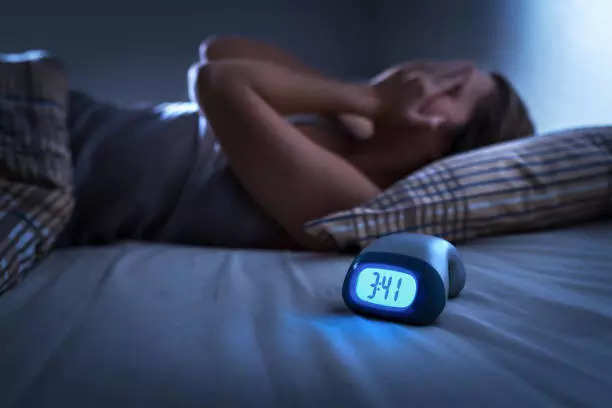A little prodding by the doctor, a psychologist, revealed something which is far too common among teens these days – sleep deprivation.
An average teen, aged between 14-17 years, needs to sleep for at least 8-10 hours daily. However, doctors say, there are many children who do not get enough sleep, either due to academic pressure or because they are just too hooked to activities such as social media use or gaming to go to bed on time.
According to Dr Samir Parikh, director of the department of mental health and behavioural sciences at Fortis Healthcare, post Covid pandemic such problems have become worse as physical activities among kids have reduced.
“Lack of sleep is known to cause mental and behavioural health issues. For example, it can affect the child’s mood. Behavioural problems such as aggressive behaviour can be seen. Also, it is common to find sleep deprived people, including kids, making careless mistakes as they can’t focus. Social deficits are also observed,” Dr Parikh explained. Recently, American Psychological Association (APA) issued a health advisory on social media use among adolescents. It suggests adolescents should get at least eight hours of sleep each night and maintain regular sleep-wake schedules.
“Data indicate that technology use particularly within one hour of bedtime, and social media use in particular, is associated with sleep disruptions. Insufficient sleep is associated with disruptions to neurological development in adolescent brains, teens’ emotional functioning and risk for suicide,” says the APA advisory.
Good sleep is a fundamental need for good health. But in an age in which digital media has taken over our lives, many teens are addicted to its lures and suffer from lack of sleep. Schools and parents should be proactive in making kids aware of the downside of digital overload and find ways to make them move away from it. The danger is bigger than it seems.
Studies suggest sleep deprivation can also affect the immune system’s ability to defend against cold and flu and predispose a person to metabolic disorders. “Parents should ensure children follow a more active lifestyle. They should spend double the time spent on digital media in different outdoor activities for better physical and mental health,” said Dr Randeep Guleria, chairman of the Institute of Internal Medicine & Respiratory and Sleep Medicine at Medanta.
An average teen, aged between 14 and 17 years, needs to sleep for at least 8-10 hours daily. Studies suggest that sleep deprivation can also affect the immune system’s ability to defend against cold and flu and predispose a person to metabolic disorders.


